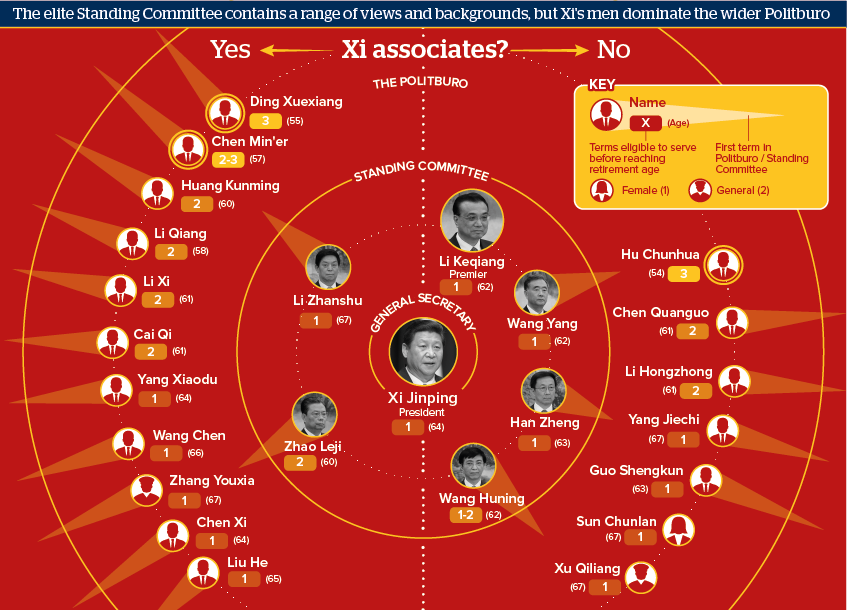Lack of successor to Xi could mean instability ahead
China's new Politburo is packed with associates of President Xi Jinping but none of them is a clear successor
Source: Oxford Analytica. Photos: Reuters/Jason Lee, Kaliva/Shutterstock.com
Outlook
By convention, future presidents serve a five-year term on the Politburo Standing Committee before assuming the top post for two consecutive five-year terms. However, the new Standing Committee includes nobody young enough to serve three terms before reaching 68, the age at which they must by convention retire.
This creates great uncertainty over who China’s next leader will be and when he will take over. President Xi Jinping’s successor may ascend directly from the Politburo to the presidency; he may break the age limit or serve only a single term; or he may take over only after Xi has served a third term.
Impacts
- Collective leadership is not about to give way to dictatorship, because Xi has not managed to pack the Standing Committee with allies.
- Xi’s associates dominate new appointments to the wider Politburo, which will strengthen his influence during the coming five-year term.
- If Xi steps down in 2022, Chen Min’er, Ding Xuexiang and Hu Chunhua seem the most likely successors because of their relative youth.
See also
- China's Party Congress will lay ground for next decade - Jun 20, 2022
- Threats to China’s future worsen - May 8, 2019
- Party Congress raises Xi's prestige and power - Oct 25, 2017
- More graphic analysis
